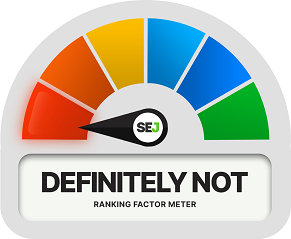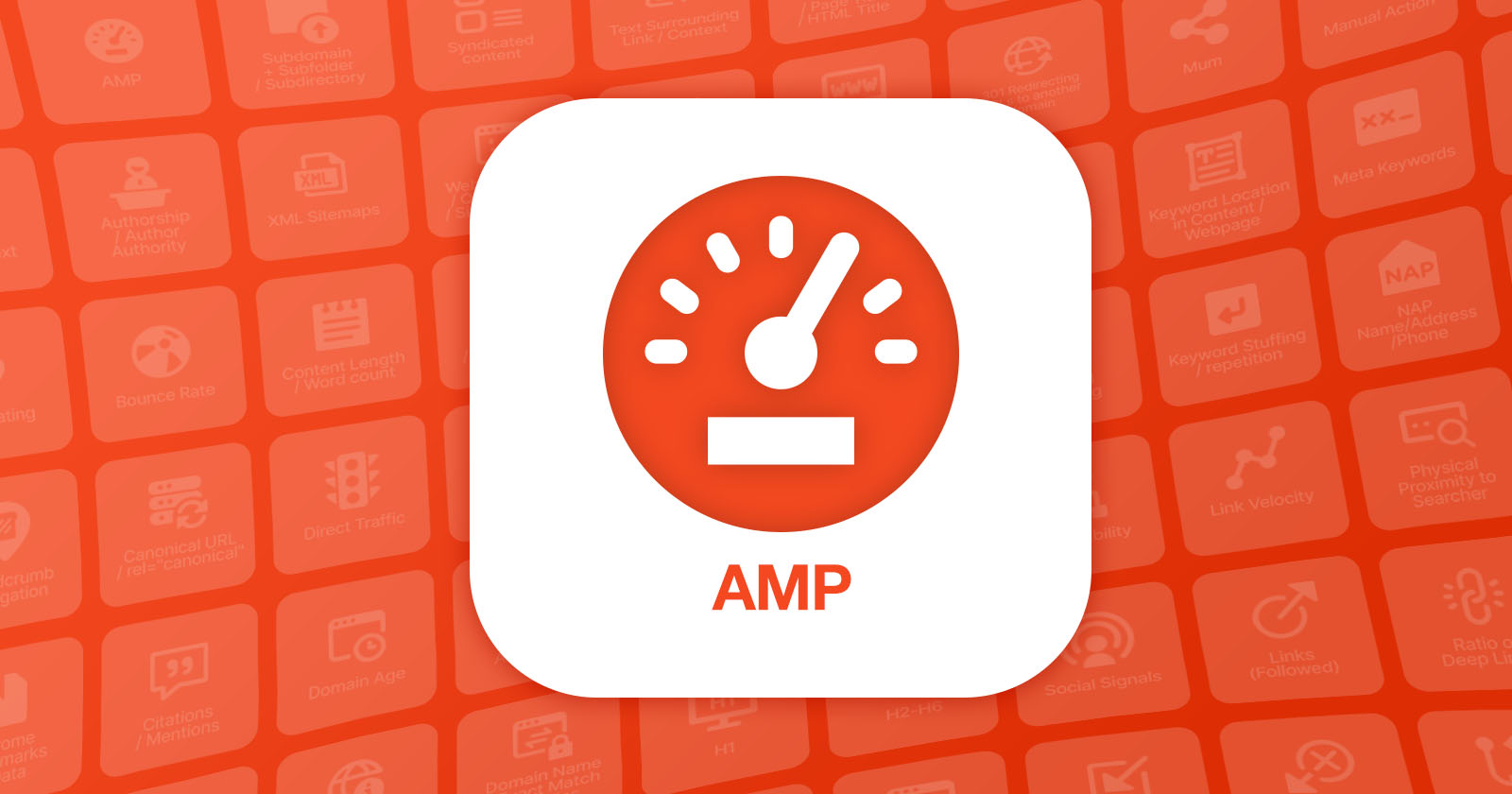AMP is an HTML framework that helps desktop-optimized sites deliver ultra-fast mobile versions of webpages.
AMP is a creation of Google, which has led to claims it gives pages a ranking advantage in mobile search over non-AMP pages.
When you think about it, AMP ticks several boxes that suggest it could be a ranking factor:
- Developed by Google ✅
- Makes websites more mobile-friendly ✅
- Improves page speed ✅
Despite actively encouraging people to use it, Google has debunked claims that AMP is a ranking factor.
Case closed, right?
It’s easy to say AMP doesn’t give a site an advantage in rankings and leave it at that.
But we can’t write it off and ignore the impact it has on other elements that do matter for SEO.
Here’s what the evidence says about AMP’s impact on search results and its connection to other ranking factors.
And if you have more questions about what is and isn’t a Google Ranking Factor, we answer them all in the latest Google Ranking Factors: Fact Or Fiction ebook.
The Claim: AMP As A Ranking Factor
The claim here is straightforward – AMP gives pages a ranking boost in Google’s search results.
Discussions about AMP as a ranking factor began when Google launched the technology in 2018.
Why?
People think AMP is a ranking factor because Google has a stake in its success as a technology.
Google is responsible for creating AMP and actively encourages using it as part of a more significant effort to speed up the web.
In theory, Google could increase the adoption rate of AMP by turning it into a ranking signal.
The ranking boost would be a reward for using Google’s new technology. Of course, that would be unfair to any site not using AMP.
If Google used AMP to rank search results, you could argue it would be forcing sites to use its technology to stay relevant.
Thankfully, that’s not how search works.
But AMP isn’t irrelevant to SEO by any stretch.
Let’s look at the evidence on how AMP impacts SEO.
The Evidence Against AMP As A Ranking Factor
This one is pretty easy – Google has confirmed that AMP is not a ranking factor. Again. And again.
In Google’s Advanced SEO guide, the company says it ranks all pages using the same signals:
“While AMP itself isn’t a ranking factor, speed is a ranking factor for Google Search. Google Search applies the same standard to all pages, regardless of the technology used to build the page.”
This quote touches on something we mentioned earlier about AMP impacting other things, like page speed, which are confirmed ranking factors.
Sites that use AMP can potentially benefit from these other signals.
As of July 2018, page speed has been a ranking factor for mobile searches.
Because AMP loads pages instantly, it can help sites send stronger ranking signals regarding mobile page speed.
The increased speed has the potential to lead to better rankings. However, sites can generate the same signals without AMP.
Core Web Vitals
Google’s Core Web Vitals became ranking factors with the rollout of the Page Experience update in June 2021.
Leading up to the update’s launch, Google’s communication to site owners has always been that AMP can help achieve ideal Core Web Vitals scores.
“There is a high likelihood that AMP pages will meet the thresholds. AMP is about delivering high-quality, user-first experiences; its initial design goals are closely aligned with what Core Web Vitals measure today.
This means that sites built using AMP likely can easily meet Web Vitals thresholds.”
Google presented data showing that AMP domains were five times more likely to pass Core Web Vitals than non-AMP domains.
Passing Google’s Core Web Vitals thresholds can improve a site’s search rankings.
Again, as with the page speed ranking boost, you can achieve this without AMP.
Decline Of AMP
AMP used to carry various perks that could enhance how a page appears in search results.
For example, Google’s Top Stories carousel appears at the top of search results when looking for news stories and used to only accept AMP pages.
Top Stories eligibility was a ranking advantage unique to AMP for a while.
That changed in June 2021 with the rollout of the Page Experience update, which now makes it possible for non-AMP pages to appear in the Top Stories carousel.
Another unique feature of AMP pages was that a lightning bolt icon appeared in search results to indicate which pages offered faster experiences.
Google has done away with that icon. Now, AMP pages are indistinguishable from regular pages in search results.
AMP Decline Continues
Since the first version of this ebook was released, AMP has continued to decline steadily.
In response to complaints from publishers and readers alike, an update to Google News on mobile bypasses AMP URLs and sends traffic directly to publishers’ websites.
Google has a long history of introducing new tools, hyping them up, and retiring them years later. Examples include failed social media site Google+ and Skype competitor Google Hangouts.
AMP isn’t retired yet, but it would be on-brand for Google to say that this web technology it developed is no longer relevant.
It’s not only Google saying it, but other web companies are dropping AMP from their platforms.
Twitter no longer supports AMP links and treats them like Google News by redirecting visitors to the publishers’ domains.
As more companies continue to limit the prevalence of AMP, there’s no reason why you should have to do anything different to your website.
If you’re currently using AMP and are happy with how your webpages perform in search results, then continue doing what you’re doing.
Should the day come when Google shutters the AMP project, it’s not as though your website will stop working. AMP is HTML code crawled and indexed like anything else on the web.
Our Verdict: AMP Is Not A Ranking Factor

Google has confirmed multiple times that AMP is not a Google ranking factor.
Further, it no longer has unique advantages that could impact click-through rates, such as a distinctive icon and Top Stories exclusivity.
AMP can positively impact other ranking factors (e.g., speed), but it is not a factor on its own.
Find out more about ranking factors: Google Ranking Factors: Fact Or Fiction.
Featured image: Paulo Bobita/Search Engine Journal





![[SEO, PPC & Attribution] Unlocking The Power Of Offline Marketing In A Digital World](https://www.searchenginejournal.com/wp-content/uploads/2025/03/sidebar1x-534.png)